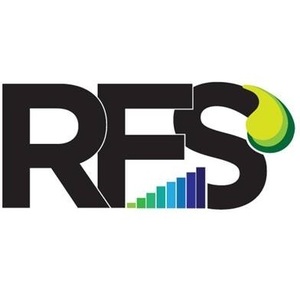Groups testify against EPA's proposed RFS deadline extensions

February 9, 2021
BY Erin Krueger
Representatives of the biofuels industry testified against the U.S. EPA’s proposed extension of the 2019 and 2020 Renewable Fuel Standard compliance deadlines during a Feb. 9 virtual hearing. Public comments on the proposal can be filed through March 11.
The EPA published a proposed rule in mid-January that aims to extend the RFS compliance deadline for the 2019 compliance year and the associated deadline for submission of attest engagement reports for the 2019 compliance year for small refineries. The new deadlines would be set for Nov. 30, 2021 and June 1, 2022, respectively. The EPA is also proposing to extend the RFS compliance deadline for the 2020 compliance year for obligated parties and renewable identification number (RIN) generating renewable fuel producers and importers, and other parties holding RINs. The new deadlines would be set for Jan. 31, 2022 and June 1, 2022, respectively.
The Renewable Fuels Association and Growth Energy spoke out against the proposed extensions during the Feb. 9 virtual hearing.
Advertisement
Advertisement
“To put it briefly, this proposal is one last attempt by the former EPA administrator to undermine the RFS on his way out the door,” said Scott Richman, chief economist at the RFA. “One last favor to oil refiners. One last bit of contorted logic to justify actions contrary to the statute and even to common sense. All that this proposal does is to compound problems that the agency itself created under the former administration—the massive and illegal increase in small refinery exemptions and the failure to finalize the 2021 Renewable Volume Obligations by the statutory deadline.”
Richman pointed out how, in the case of the 2019 compliance deadline, EPA is actually seeking an extension of an extension; nearly a year has passed since the original deadline, and refiners are simply seeking to stall the inevitable. EPA’s continued delays have allowed those refiners who did not use a sufficient volume of biofuels to comply with their 2019 standards to instead buy RIN credits at historically low prices.
“This proposal is unwarranted, and the timelines it contains are excessive,” Richman concluded. “It is reasonable to assume that refiners were planning to meet the regulatory compliance deadline on March 31, and have had ample time to position themselves to do so. The agency should quickly reject the proposed extensions and re-establish integrity in its implementation of the RFS.”
During his testimony, Chris Bliley, senior vice president of regulatory affairs at Growth Energy, called on EPA to reject calls to delay RFS compliance and instead take immediate steps to restore integrity to the RFS and restore lost biofuel demand. “The intent of the RFS is to blend more biofuels into our nation’s transportation fuel supply. Period. It is not meant to have oil companies use questionable legal tactics to avoid blending biofuels and then demanding that the agency further delay compliance.”
Advertisement
Advertisement
Bliley also reminded EPA about the benefits of biofuels as America works toward its clean climate goals, stating that “With recent research showing that greenhouse gas emissions from corn ethanol are 46 percent lower than gasoline, it makes no sense why EPA should continue to exempt oil companies and further delay them from complying with their blending obligations.”
Public comments can be filed on the proposed rule through March 11 on the www.regulations.gov website under Docket ID: EPA-HQ-OAR-2020-0725.
Related Stories
President Trump on July 4 signed the “One Big Beautiful Bill Act.” The legislation extends and updates the 45Z credit and revives a tax credit benefiting small biodiesel producers but repeals several other bioenergy-related tax incentives.
CARB on June 27 announced amendments to the state’s LCFS regulations will take effect beginning on July 1. The amended regulations were approved by the agency in November 2024, but implementation was delayed due to regulatory clarity issues.
SAF Magazine and the Commercial Aviation Alternative Fuels Initiative announced the preliminary agenda for the North American SAF Conference and Expo, being held Sept. 22-24 at the Minneapolis Convention Center in Minneapolis, Minnesota.
International Sustainability & Carbon Certification has announced that Environment and Climate Change Canada has approved ISCC as a certification scheme in line with its sustainability criteria under its Clean Fuel Regulations.
Legislation introduced in the California Senate on June 23 aims to cap the price of Low Carbon Fuel Standard credits as part of a larger effort to overhaul the state’s fuel regulations and mitigate rising gas prices.
Upcoming Events









